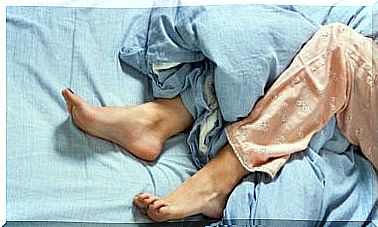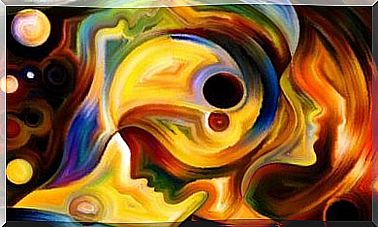Narcolepsy: Symptoms And Treatment

Narcolepsy is a chronic sleep and neurological disorder in which, in addition to excessive fatigue, patients may experience sudden sleep paralysis, hallucinations, and even fainting. In this article, we will look at the symptoms and treatment of narcolepsy.
Narcolepsy is both disabling and peculiar at the same time. It has a very low incidence among the general population. This condition, also called Gelineau syndrome, still does not have a cure. However, there are various treatments that can ensure that the patient has a reasonable quality of life, and is able to have control over his daily life.
Dr. Meir H. Kryger, an expert in medicine and sleep psychology, says that few disorders are more complex than narcolepsy. He explains, in one of his articles, that he has treated patients who, instead of being diagnosed with narcolepsy, have been misdiagnosed with schizophrenia.
Children and adolescents can be misdiagnosed due to the hallucinations that this condition can cause. They see imaginary objects and people, and these types of experiences traumatize them.
Living in a world where no one can tell them the difference between what is right and what belongs to the dream world is not easy. It is a life full of fear and frustration as the patient is unable to control his own body.

What is narcolepsy?
Narcolepsy is a neurological disorder, but researchers still do not understand what triggers it. One thing that experts have been able to clarify is that it is a hereditary disease. There are certain genetic markers that determine whether a person is at risk of suffering from it or not.
Another characteristic of narcolepsy is that it is an autoimmune disease. For unknown reasons, the body attacks itself, changes certain processes and changes the body’s patterns and cycles. Therefore, their sleep patterns become disturbed and they experience dreams and nightmares while still awake.
Characteristics of the disorder
When we think of narcolepsy, we imagine a person who can completely collapse from one second to another. We are thinking of someone who sleeps excessively and suffers from falling asleep at night. However, it is much more than that. Here are some of the symptoms of narcolepsy:
- Most narcoleptic people suffer from mood disorders. Furthermore, intense emotions, sometimes even a simple laugh, can cause muscle paralysis and fainting.
- Another symptom is fatigue during the day. A curious aspect of this condition is that the person’s need to close his eyes and sleep does not just occur in monotonous, repetitive situations, such as when we are lying on the couch watching TV or reading. Narcolepsy also occurs when the person is driving, working, or even eating a meal with his friends.
- Hallucinations: As we mentioned at the beginning, one of the most intense experiences the patient has is hallucinations, which can be auditory, visual or tactile.
- Sleep paralysis is another common symptom. This is a type of parasomnia that exists somewhere between sleep and waking stages. The person feels unable to move or react, giving an experience of a deep feeling of pain and dread.
- It is also common for the patient to suffer from memory and concentration problems.
- In addition, some drug addicts suffer from eating disorders.

Treatment of narcolepsy
Narcolepsy affects men and women equally, and it even affects animals. Each patient’s treatment will be unique, according to his or her individual needs. Here are some of the most common treatment strategies:
- Established lures and proper sleep hygiene.
- It is common for doctors to prescribe stimulants such as methylphenidate, dextroamphetamine and methamphetamine.
- To treat hypnagogic hallucinations and sleep paralysis, antidepressants, especially tricyclic antidepressants, are very useful.

To round off, although the prevalence of this disease is low, it can greatly affect the patient’s daily life.
In addition to this, it is also common for the patient to feel that they have lost control and that they lose their composure – especially if the hallucinations are frequent. Furthermore, with the help of a good medical professional and appropriate treatment, the patient can make great progress.
We should be more sensitive to those who suffer from this sleep disorder, and treat their condition as something quite normal, and not as something out of the ordinary.









